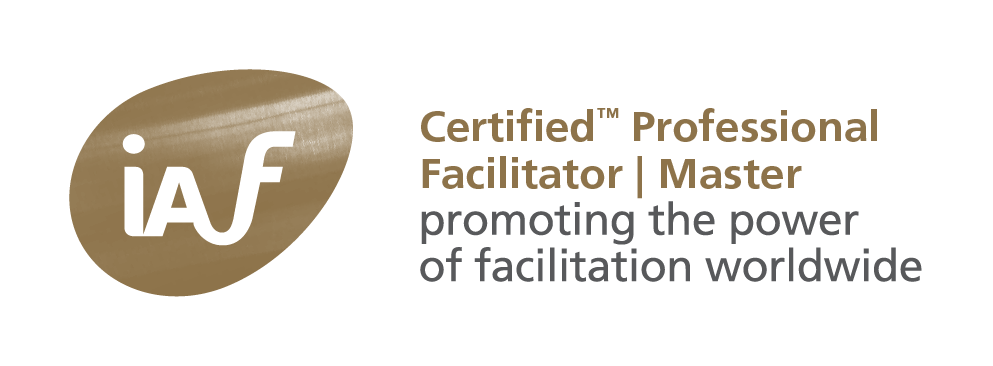Case 2
How to deal with facilitation and training, has been raised by this quote:
when we talk about adapting from lecturing to facilitating methods in classroom (f2f & virtual), both facilitator and participants have hard time to really get themselves in. In traditional classroom teachers are the one to do input, and in facilitative classroom facilitator helps participants to reframe their study experiences. There will be no expert/teacher any more, the learning is for everyone in there. So, are there any tips to get participants better prepared to go through the hard times? They are the ones to hold the responsibility.
Some theory
I’ve been writing about this in our book with 24 cases of facilitation, “Diverging Conversations through Facilitation” (I’m using it to support this mentoring. If you need a copy, please visit: order your copies of Diverging Conversations on Facilitation). Here is a quote:
Trainer with Facilitator
Diverging Conversations through Facilitation – 24 cases p. 17
A trainer trains trainees into perfection, perfecting the execution of a set of activities. This is an Analytical (1st) mode, using scheme’s, testing programs and measuring progress. Most of the time, it is one way. The trainer and the trainee have the same, but not a common goal. In a facilitated training the trainer becomes more of a moderator (4th Evaluative), .. showing how a group can determine its own target and run its own “training” program.
A teacher or educator transfers knowledge to his or her students. This can be done in several ways (examples in the book; and yes, based on learning styles by Kolb):
- Learning by doing, designing models and testing them
- Learning by thinking, creating theories and proving theorems
- Learning by reflecting, using feelings and thinking, conceptualizing
- Learning through experimenting, (serious) gaming
In case of facilitating learning, the teacher not only transfers his or hers knowledge. Also participants transfer their knowledge to each other. I like to quote Carl Rogers, “A person cannot teach another person directly; a person can only facilitate another’s learning”
Some tips
- pose a question and question answer(s) and/or change a statement into a question (and keep using the same words);
- the learning is in the resistance; view resistance as a learning opportunity. What need is trying to surface?
- use silence; you can even start a online meeting with a minute silence. Try two too.
- ask people to think (write down some notes) before anyone speaks;
- ask people to speak in the first person only
- get messy (See “Getting Messy” A Guide to Risk Taking and Opening the Imagination for Teachers, Trainers, Coaches and Mentors”by Kim Hermanson PhD.)
- change roles: let parents play teachers, teachers play school board, pupil play school inspectors … . (Or workers becoming clients, sales people into (production) workers…)
- Step into another metaphor: this situation is like a zoo (roles become animals), an exploring mission (into deep space?), a movie (or a movie crew – director, camera, sound, editor, ….). What are the qualities of this situation and how can you map them on your current situation.
- Quoting myself: “when you understand what participants are talking about 1), you’re probably wrong; if you don’t understand them – but they talk among themselves – you’re most probably right.” Participants know their situation, their know-how is about content. A facilitator introduces process questions, like “know-why”. (I love to facilitate people in another language, Chinese, Japanese, Polish, Indian, …Even English is a foreign language to me.)
The book “Facilitating Learning with the Adult Brain in Mind” states clearly: adults learn through reflecting on feedback. Feedback from peers works best. Even when perceived “wrong” from the teacher’s perceptive. People learn from reflecting on their errors, not from correcting or preventing them.
Any thoughts? Insights?
What are you going to do differently tomorrow?
- Footnote: Most clients assume you need to have some knowledge of the subject. Don’t fall into this trap – it sets up a “double bind” – because it will be used against you. After the session, they will not use the outcomes, “because the facilitator didn’t understand it like we do”. I never discuss this with my client. Skip it. Just pretend to know enough by using the right key words. More often than not, just repeat the words you read when entering the building. Always check the personnel bulletin.




